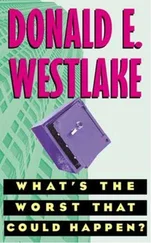Well, something had to signify. Kelp strolled for a while among the wheels on offer, and then he saw a white Lexus RX 400h, the low-fuel-consumption hybrid, and yes, MD plates; unusual on a white car. This doctor drives a hybrid, so this doctor cares about the planet. And the bumper sticker: The Earth — Our Home — Keep It Tidy . Uh huh. And when he looked through the driver's window, there was the clincher: two bottles of Poland Spring water in the cup holders.
An electronically inclined acquaintance of Kelp's named Wally Knurr had recently sold him, at very little above cost, a carefully restructured universal remote. Originally meant to find its way through the various individual electronic signals of every known TV, VCR, and DVD, the machine now provided the same service for your most recent automobile models, thus bypassing all the physical violence of yesteryear. It took Kelp barely a dozen clicks with the remote to make the Lexus give him the bleep of welcome. He checked inside, to be sure the parking fee ticket was in its place behind the sun visor, saw that it was, locked the Lexus again and went off to find Anne Marie.
Who seemed to be the only one in her group to come down the long ramp from the gates without a briefcase. What she lugged instead was a bulky black leather shoulder bag bouncing on her right hip, which made her look like a particularly fetching stew out of uniform, and from the tail ends of a few conversations he observed as the herd headed this way some of her fellow passengers had dreamed of being in a position to get her even further out of uniform, but forget all that now: her boyfriend's back.
They kissed, to the disgust of the briefcase-toters, and made their way out to long-term, where Anne Marie gazed with pleasure upon the Lexus and said, "For me?"
"I picked it out special."
"You're very thoughtful," Anne Maria told him, as he remoted them into the car.
Once he had the seat adjusted back from somewhere up against the firewall, the Lexus was fine. Kelp happily paid the three-day parking charge and out they went to Grand Central Parkway, westbound toward the city.
As they drove, he said, "I guess it all went okay, then."
"You owe me four hundred bucks."
"Extra beyond the airfare, you mean. How'd I do that?"
"Mr. Earring Man wanted an advance," she said. "He smelled a felony, and would risk his reputation for no less."
"I can understand that," Kelp said. "You did right to pay him."
"You know, Andy," she said, "I'm not the gang's banker."
"Oh, I know that," Kelp assured her. "Me and John, over the weekend, we'll do a little this and that."
"Good."
"But otherwise, he says no problem, huh?"
"He didn't want to admit how easy it was going to be," she said, "but I could tell."
The 125th Street Bridge was near. "I missed you," he said.
"Good. I missed you, too."
"We'll have a nice dinner out."
She considered that. "We'll have a nice late dinner out," she decided.
AS FAR AS Dortmunder was concerned, his was a for-profit operation, so he wasn't in love with the idea that, not only was this particular heist impossible, but now they were in the red on the thing to the tune of four hundred bucks. He understood that Anne Marie had done what Anne Marie had to do, but even so.
Over the weekend, to pay this debt, Dortmunder and Kelp made a couple little after-hours visits to some Madison Avenue luxury purveyors so upscale and rarefied the little sign in the door said, English spoken , which further necessitated a West Side visit to a fellow named Arnie Albright, known to the authorities as a receiver of stolen goods but to his customers as the guy you went to when you were carrying something you didn't want to carry any more.
Negotiations with Arnie were usually brutish, nasty, and short, the short because Arnie well knew he had competitors who, while perhaps a little more off the beaten path and certainly noted for bargaining an extremely hard dollar, were also well ahead of Arnie in the acceptable human being category. Arnie knew his customers could only stand to look at him for so long, particularly when, such as now, his recurring wet red rash had returned, to spread over his lumpy face so that he looked as though he'd fallen asleep in a bowl of salsa. When you finally did get the cash, you wanted to go home and wash it.
As for Johnny Eppick and his employer, Mr. Hemlow, Dortmunder assumed the granddaughter was having a little trouble collecting the information he'd requested on all the other heirs, which was also okay, because, once he did get that information, he hadn't the slightest idea what he was going to do with it. So, let sleeping Eppicks lie.
Which he did, until late the following Monday morning, shortly after May had gone off to the Safeway. That's when the phone decided to ring, so Dortmunder put down the Daily News — there didn't seem to be anybody he knew in it today — got to his feet, walked to the kitchen, grabbed the receiver, and said, "Yar."
"Mr. Hemlow wants to see us. His place."
Fatalistic, Dortmunder said, "I'm springing for another cab, am I?"
"I don't think you have time to walk," Eppick said, and hung up.
Poker-faced, the doorman said, "The other gentleman is already here."
"Yeah, I see him," Dortmunder said. He was in a bad mood because of having to spend so much of Arnie Albright's money just to get here.
Eppick's manner was not bad-tempered, actually, just guarded. Rising from the rhinoceros-horn chair, he said, "He didn't sound happy."
"Like usual, you mean."
"Maybe worse."
As they rode up in the elevator with its extraneous operator, Eppick said, "We'll just see how it goes."
"That sounds like a plan," Dortmunder agreed.
It was not going to go well. Mr. Hemlow in his wheelchair waited in his usual position on the polished floor of his penthouse, but when they emerged from the elevator he did not spin around, did not zoom over to the view, did not invite them to take a seat. Instead, he stayed where he was, with them on their feet in front of him, and after the elevator had gone away he said, "I wanted to tell you both in person. I don't blame either of you for what happened."
Eppick, sounding alarmed, said, "Something happened?"
"Last Wednesday," Mr. Hemlow said, "my granddaughter was fired. Embarrassed, she didn't tell me, but this morning, in the mail, arrived the list of heirs you asked for."
"You mean John asked for," Eppick said, dodging a bullet.
"Yes, of course."
Mr. Hemlow seemed shrunken this morning, as though some of the stuffing had leaked out of the medicine ball. His eyes and brow were more troubled than hawklike today, and even the red beret perched atop him like a maraschino cherry didn't do much to improve the bad vibe he exuded.
"I phoned her when I received the envelope," he said, "and she explained she'd been fired, had been escorted from the offices by an armed guard, and had just barely time to mail me the envelope before the guard searched her belongings."
"Searched her belongings!" Eppick sounded equal parts astounded and outraged.
Mr. Hemlow's tempo-setting knee kept double time to the slow sad shake of his head. "That is the corporate form of the farewell interview these days, it appears," he said. "Particularly if the employee has been caught breaking the rules, as Fiona had, and on my account. That's what I blame myself for, and no one else."
Dortmunder, who had kind of liked Fiona Hemlow, said, "What kinda rule did she break?"
"She sought out Livia Northwood Wheeler. She had no right to speak to Mrs. Wheeler, no justification for approaching her. A person in Fiona's position — in Fiona's former position — is not to speak until spoken to."
Читать дальше












